If you had the power to literally build any biological system from the ground up, what would you create?
This is the question that the most brilliant and talented minds across the world are wrestling with. The truth is, biology is entering an entirely new era, filled with wonder, mystery, and it's fair share of legitimate fears.
Never before have human beings had this much control over life itself, and we have only barely scratched the surface when it comes to our understanding of it.
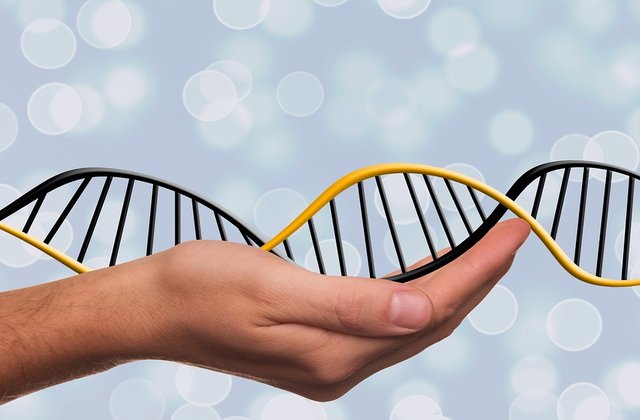
Putting the fears and worries to the side for the moment, what exactly can we do with nearly unlimited genetic power? How can this technology help better this world for current and future generations alike?
Prepare yourself, because this is going to be a fascinating ride.
What is the CRISPR/Cas9 System?
In case you missed the last post in this series, here's a more comprehensive explanation of the CRISPR/Cas9 system, and the mechanisms behind its functioning.
In short, the CRISPR/Cas9 system is an extremely precise gene editing tool that was originally discovered in bacteria and archaea. It's an adaptive immune system that evolved to remember previous viral infections, and then search it's own DNA to find any mutations brought on by the virus, and destroy it.
Humans have now hijacked this system, and are reprogramming it for a wide array of functions in biological systems, giving us a power never before seen in our history.
What's So Special About CRISPR/Cas9?
Gene editing isn't anything new, but the reason the entire scientific field is scrambling to use this technology in their research is because of the ease and effectiveness of the process. What used to require complicated lab equipment and cost tens of thousands of dollars, can now be done with a very basic set-up and for as little as a couple hundred dollars.
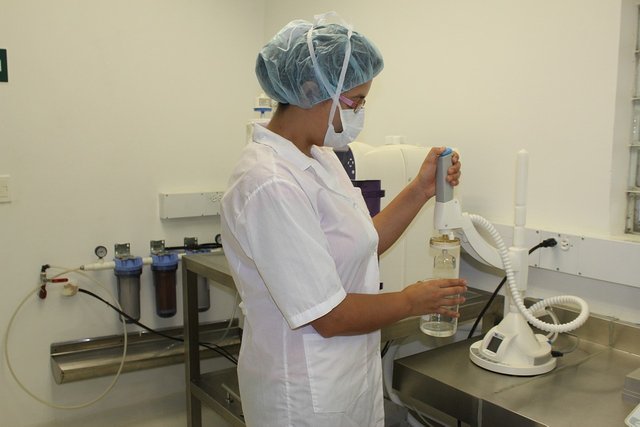
In past iterations of gene editing technology, making an edit was somewhat like playing a game of billiards in the pitch black — while possible, there was never any guarantee that it was going to work, even with the most skilled and proven individuals at the helm.
Now, with the CRISPR/Cas9 system, it's like a spot-light has been put on the table, and the cue ball has been given a laser-guided targeting system.
Not only can we make extremely precise edits to the genome, we can make multiple edits at once — around 60 or so, with a staggering degree of efficiency. If that wasn't enough, we can also edit single nucleobases, allowing us to observe the consequences of very small edits and mutations to the genome.
Think of it like a giant game of logic, where scientists are asking "what happens to the whole system if I change one little thing?"
In essence, CRISPR/Cas9 has given us unprecedented power over evolution.
So the question of the day is, what can we do with this power?
Let's find out.
Applications for Agriculture
You'd be a fool to ignore the problem our planet has when it comes to food. Certain countries have too much, while others not enough. Climate dictates which crops can be grown where, and pesticide resistance is costing more and more farmers their livelihood.

This, is where the CRISPR/Cas9 system comes in.
A Less Risky and Controversial GMO
For years now, debate has raged about the safety and purpose behind GMO's (genetically modified organism). While scientists have claimed for years that there's nothing to worry about, even just a little research can dig up some pretty legitimate concerns.
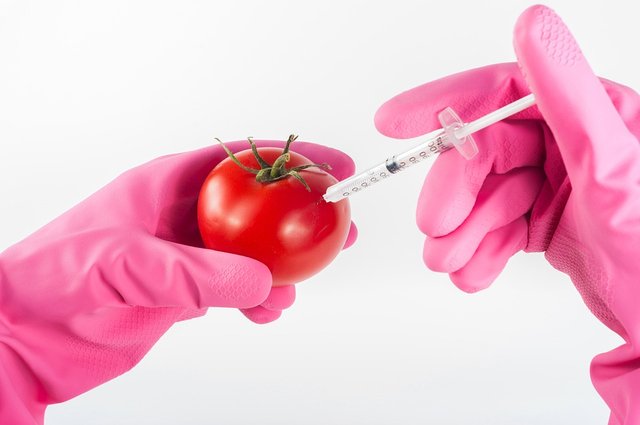
Up until recently, if we wanted to make a crop that was resistant to some kind of spoilage, grow to 5x it's normal size, or be resistant to cold weather, we'd need to insert genetic sequences from other organisms, such as anti-freeze genes from a fish, into the crop itself.
Now, with the CRISPR/Cas9 system, we don't need to insert any foreign DNA into a crop. We can build whatever traits we'd like into the DNA itself, eliminating the vast majority of the concerns over GMO's.
Eliminate the Need for Pesticides
The use of pesticides in crops has increased dramatically over the years, causing immense concern in the public's eyes. Again, scientists tell us that there's nothing to worry about, but a quick Google search shows that pesticides are hazardous to our health, as well as extremely harmful to the environment.
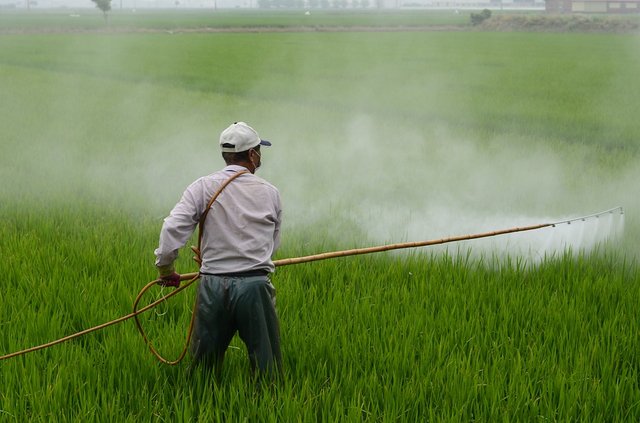
With CRISPR, we can engineer crops to become undesirable to pests, making the use of harmful chemicals all but obsolete. It will even be possible to engineer crops that are harmful to the pests themselves, but it's easy to see how that itself can become a topic of debate.
Crops Can Be Made to Be Nutrient Dense
One of the most intriguing ideas to me, is that we could engineer a food, say an ear of corn, to be filled with the body's daily nutrient requirements, without necessarily changing the tastiness of the food itself. Parents who struggle to get their children to eat their vegetables could have entire foods built with the palatability of a treat, yet with the nutrients the growing child requires.

Imagine how this could be utilized for humanitarian purposes around the world.
Crops That Are Drought Resistant
Two of the biggest hurdles for solving world hunger issues is climate, and environmental pollution. Through CRISPR, crops could be engineered that could grow in deserts such as the Sahara, or in areas of horrendous water quality, such as Peru.

If this is combined with the ability to produce an enormous yield, and grow in an accelerated time frame, it isn't an exaggeration to say world hunger can essentially be managed within years.
Disease in Livestock
A serious and devastating issue that faces many who raise livestock, is that of disease. Entire generations of cattle, swine, chickens, and others, can be wiped out, throwing the lives of those who raise them into chaos and uncertainty. Certain diseases even have made the terrifying leap into affecting the human population, such as the Swine Flu.

With CRISPR, the ability to eliminate disease isn't only limited to humans. With this technology, livestock could be engineered to also thrive in areas of poor or different climate conditions.
Applications for Humans
While genetically modified crops and livestock are immensely interesting, the potential applications for us as humans is where things really take off. However, I think it's important to understand that most of these have a long ways to go, with several hurdles in the way of their progress. Still, these advancements are coming whether we're ready or not.

So, what can we expect to happen within the next 50 or so years?
Elimination of All Genetic Disease
We discussed this one in our first post, but it bears repeating. CRISPR is already capable of removing diseases such as Sickle Cell Anemia, Huntington's Disease, Cystic Fibrosis, and more from the populace. The only thing limiting these specific diseases currently is FDA approval. However, these are only a few of the genetic diseases we can eliminate. If you're looking for a more comprehensive list, here you are.

Now, it's easy to wonder if genetic diseases are the stopping point. What about all disease? This is where I'm going to add my own speculation, but I feel as though it's completely plausible.
The only limiting factor from a scientific perspective is knowledge of which genes code for which traits. For example, the human genome doesn't have a single gene code for single trait in every instance. Most of the traits we exhibit, like skin color, are the result of several genes acting together. If we want to change that, we need to not only understand which genes code for what, but in what order are they copied and built.
We still have a long way to go with this, but we are advancing quickly. My guess is that within the next 50 years (probably a whole lot sooner), we will know what every single gene codes for, and understand the sequence with which they are transcribed in the cells. Once we have this map fully sequenced and understood, we will be able to do anything we want with the human genome, which includes eliminating all disease.
However, that's long term. In the short term, we have other diseases we can use as stepping stones. Very big stepping stones.
Elimination of All Cancers
Cancers come in all shapes and sizes. Learning how to treat one doesn't necessarily mean we can treat another the same way. With that being said, cancers do share certain things in common. All of them come down to some kind of issue in the genetic code, whether that be from hereditary factors or from environmental factors (such as smoking).
By learning how to switch the cancer causing genes on and off with extreme ease and precision, treating cancer may become as easy as taking a pill and forgetting about it.
Elimination of All Autoimmune Diseases
Earlier this year, scientists discovered that they could use CRISPR to remove the AIDS virus from mice cells. It isn't too far of a stretch to picture us being able to eliminate other autoimmune diseases such as Diabetes Type 1, Multiple Sclerosis, and Myasthenia Gravis.
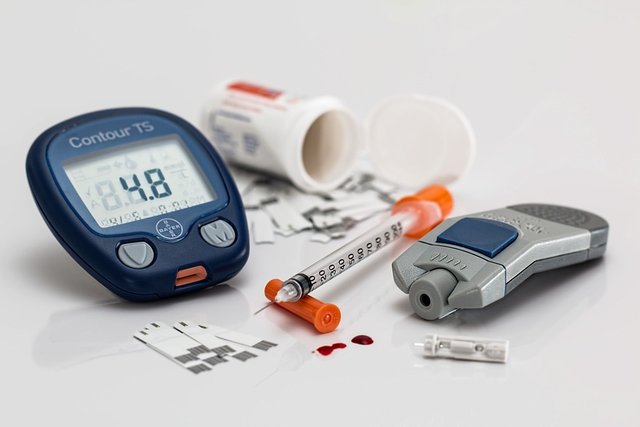
Immortality
If you talk to any biologist working in this field, they are always going to err on the side of caution and be hesitant to go this far right out of the gate. However, once you understand the basics of how the CRISPR/Cas9 system works, it's difficult to not see this coming eventually.
Now, I'm not saying that we will become superheroes, or anything of that matter. Instead, I'm talking about the ability to eliminate ageing altogether.
Ageing comes down to a few different factors, such as telomere length, and DNA oxidation. These, and other potential factors, are all manageable through gene editing.

It's reasonable to think that if we can survive for the next 30 - 50 years, immortality will become a realistic option for most of human beings.
The Tip of the Iceberg
As I sat down to write this, I realized that in order to make this into something readable, I would have to limit the amount of applications discussed.
I want to make this very clear: this is only a small fraction of potential applications of this technology.
My goal was to hopefully make you somewhat aware of the potential of this technology. Like I've said multiple times by this point, this technology is here to stay, whether we like it or not. In fact, it's getting even better than the CRISPR/Cas9 system.
So what about the obvious risks to using this technology? How far is too far when it comes to gene editing?
These questions are so important, I'll be discussing them in our next post.
Thanks for reading!
If you enjoyed this post, here a few others that might interest you!
The Future of Health and Medicine #1 - Introduction
The Future of Health and Medicine #2 - Gene Editing Using the CRISPR/Cas9 System
What Is Dandruff??
What Is Asthma?
What's the Difference Between a Strain and a Sprain?
How Do Skeletal Muscles Contract??
What Is a Heart Attack?
Why Are Human Babies So Incredibly Weak???
Why Is Your Butt So Big???
Evolution, Society, and Cryptocurrency... How Does It All Relate???
Let's Learn Anatomy #1 - Nomenclature
Let's Learn Anatomy #2 - Atoms, Molecules, and Chemistry
Let's Learn Anatomy #3 - Basics of Biochemistry
Let's Learn Anatomy #4 - Amino Acids and Proteins
Quite a nice post.
Concerns are legitimate but there isn't any evidence to validate the concerns. CRISPR isn't going to change anything either. At least not with regards to GMO foods.
Some are a great idea, most are completely unconcerning (adding vitamin production pathways, stopping apples from Browning by killing an oxidase enzyme) but others (adding pesticide/herbicide resistance) give me more pause.
Over all the concerns are overblown for the tech as a whole.
Not that simple. Many of the genes which cause cancer are also necessary for cellular function , it's all about expression levels, and precision regulation of enzyme activities in many cases. CRISPR has a lot of hurdles before it could effectively treat an adult too. Who knows where this technology will take us.
Downvoting a post can decrease pending rewards and make it less visible. Common reasons:
Submit
Thanks for the input @justtryme90! I always appreciate experienced and educated responses!
I completely agree with you when it comes to most of the GMO concerns being overblown. It seems most of the concerns come from a place of fear and misunderstanding rather than an educated and researched opinion on the matter. As with most things, people hear that it's genetically modified, and they suspect the worst without any evidence to suggest such an opinion.
Although, I do respectfully disagree with the effect CRISPR will have on GMO's. Now, I openly admit this is speculative, but using CRISPR and Fourth Generation Gene Editing will be vastly more precise and efficient in comparison to TALENs and ZFNs, and other gene editing techniques. At first, I agree that the differences will be negligible compared to current GMO techniques (such as browning), but as the technology gets better (again, there are several hurdles in front of this), the differences will become much more dramatic and noticeable.
As for cancer treatments, I also agree that it isn't so simple as taking a pill -- yet. Again, I'm being speculative here, but with an effective enough delivery system, there's no reason that it isn't possible. CRISPR has already demonstrated an ability to effect expression levels through the epigenome. It's natural to speculate off of that. Are there hurdles? Undoubtedly. But I'm not pretending there aren't.
Downvoting a post can decrease pending rewards and make it less visible. Common reasons:
Submit
I guess we will just have to wait and see how CRISPR progresses, and whether or not the challenges are able to be overcome or if some are just inherent limitations of the system. :)
I am apparently not nearly as optimistic about it as you are.
Downvoting a post can decrease pending rewards and make it less visible. Common reasons:
Submit
Believe it or not, I feel as though I'm being rather conservative with my expectations of CRISPR, or gene editing in general. At the same time, speculating in any capacity is by nature optimistic, so I will definitely give you that.
Only time will tell!
Downvoting a post can decrease pending rewards and make it less visible. Common reasons:
Submit
Congratulations @justincottle! You received a personal award!
You can view your badges on your Steem Board and compare to others on the Steem Ranking
Vote for @Steemitboard as a witness to get one more award and increased upvotes!
Downvoting a post can decrease pending rewards and make it less visible. Common reasons:
Submit